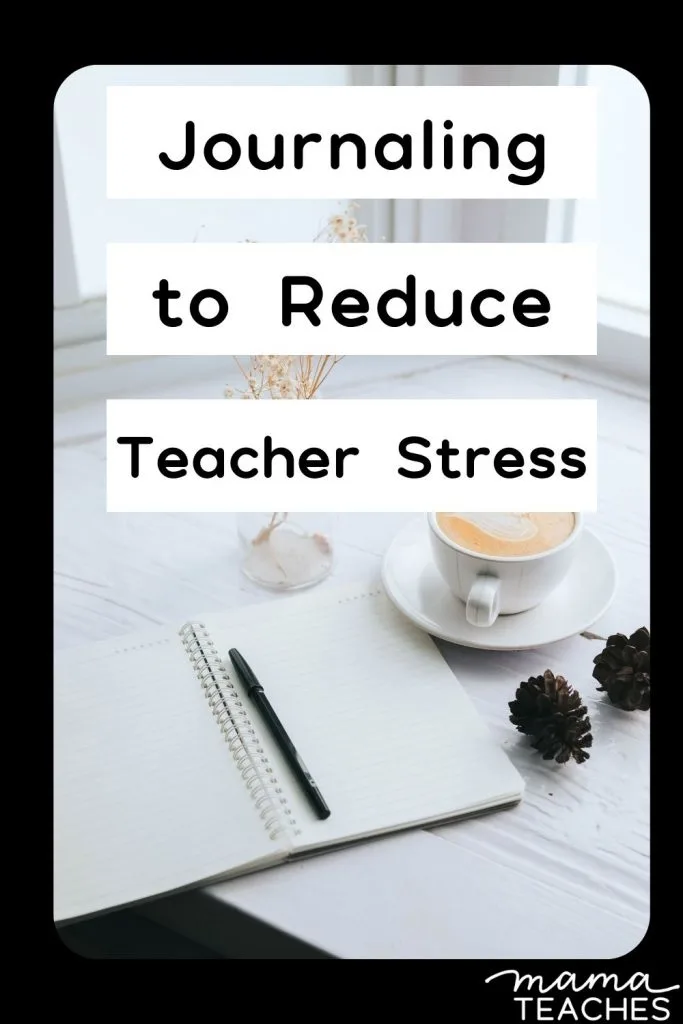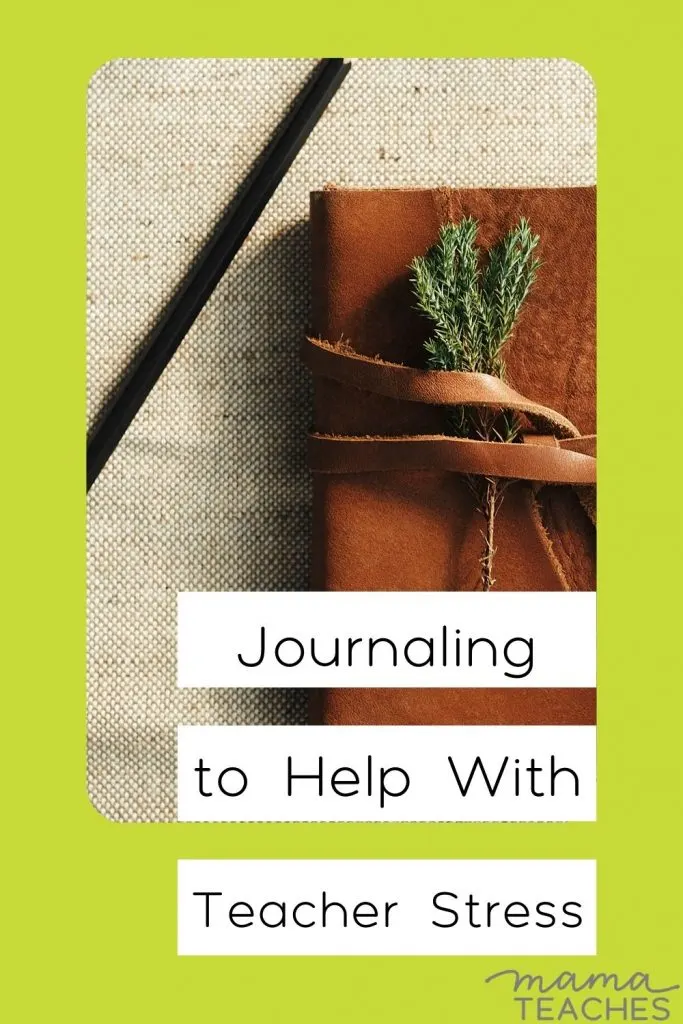Don’t let teacher stress overtake you.
Try journaling as a way to lower your stress level and become a more relaxed, grateful you.

This article contains affiliate links to things that you might like.
How Journaling Can Help You Destress
You know what it’s like to have the stress build.
You have a million things to remember; the thoughts fly around in your brain all day long.
As a teacher, you have difficult parents, a demanding schedule, challenging students, and a precarious work-life balance.
How can adding something to your day actually lower your stress?
It can if it’s journaling.
Types of Journals
Just as there is no one way to wear a scarf or top a pancake, journaling can look a million different ways.
Here are the types of journals you can keep.
A Daily Recount
Your day as a teacher is nonstop.
Journaling for teachers helps you slow down and process the day.
It can keep the pile of happenings from overtaking your brain (and causing you stress).
Record the high points and the low points of the day.
If you have worries, write them down.
If you have goals, put them on paper.
Journaling helps you capture thoughts and pin them down so they don’t rattle around in your brain.
Seeing words on paper can help you focus, remember, and keep things in perspective.

A To-Do List
I know what you’re thinking.
How is keeping a list a journal?
But this kind of writing can be a calming activity to do right before bed.
You signal to the brain that it doesn’t need to remind you all night long about what is to come.
Keeping a bedside to-do list journal is like having an external hard drive for your brain.
A Gratitude Journal
This is one of my favorite types of journals because it reframes your day.
You can measure a day by its difficulties, or you can count your blessings.
By spending a few minutes each day reminding yourself of what you’re grateful for, you will find your outlook shifting and your stress diminishing.
Keeping a gratitude journal is like training yourself to be an optimist.
Check out my favorite Gratitude Journals from Promptly Journals!
They’re well-made and the prompts make it easy to relax about what you’re going to write.
Use my exclusive coupon code to save 15% on your total purchase: THRIVE15

Memory Journal
Journaling for teachers does not have to be about teaching in any way.
Your journal can be a way to take a mental break from your job and recall your childhood.
By recording memories from your earlier life, you’ll develop a treasured memoir.
Self-Care Journal
All teachers need to practice self-care to make it happily and healthfully through the year.
One aspect of self-care can be a prompted journal that asks you introspective questions.
By processing your thoughts on paper and setting goals for yourself, you level of stress will go down as your self-esteem goes up.
Tandem Journal
When you are a teacher, you become a major figure in the lives of each of your students.
You forge a connection with these children, but you also may have children of your own at home with whom you need to maintain or strengthen your connection.
Perhaps your relationship with your significant other also needs reaffirming.
You can try tandem journaling, where you take turns writing in the same journal.
You can write letters to each other, or respond to the same prompts (e.g., “Name a time you were truly surprised.”) Journaling doesn’t have to be a solitary act; a journal can actually connect you durably to someone else.

When, Where, and How Much to Journal
Journaling should be a restful activity, so pick a favorite spot to journal.
Do you have a comfy chair that you love?
Add pleasant lighting and a soft throw.
Place your journal on a small table or a wall-rack where you can easily reach it.
Buy yourself some nice pens (even use different colors if that is your thing).
Light a scented candle or pour yourself a steaming cup of coffee or tea.
Journaling for teachers should be a pleasant sensory activity.
You should pick a dedicated time to journal.
Ask yourself, “Do I want to frame the day and look forward, or do I want to recast and reflect?” If you want to focus and goal-set, you may choose the morning.
If you want to recenter yourself and quiet your mind, you may chose the evening to journal.
You may find that you fall in love with writing, and you can easily fill pages in a session.
Or you may keep your entries short and sweet, even just a sentence or two.
There is no right or wrong way to journal.
The best journaling length for you is the one that a) you can sustain and b) you enjoy writing.

Journaling for Teachers as a Way to Relax
Your job is noble and gratifying, but it can be mentally, emotionally, and physically taxing too.
So pick a lovely journal that begs to be filled, and add the self-care habit of journaling to your routine.
Writing even 5 minutes a day can transform your outlook and lower your stress.
